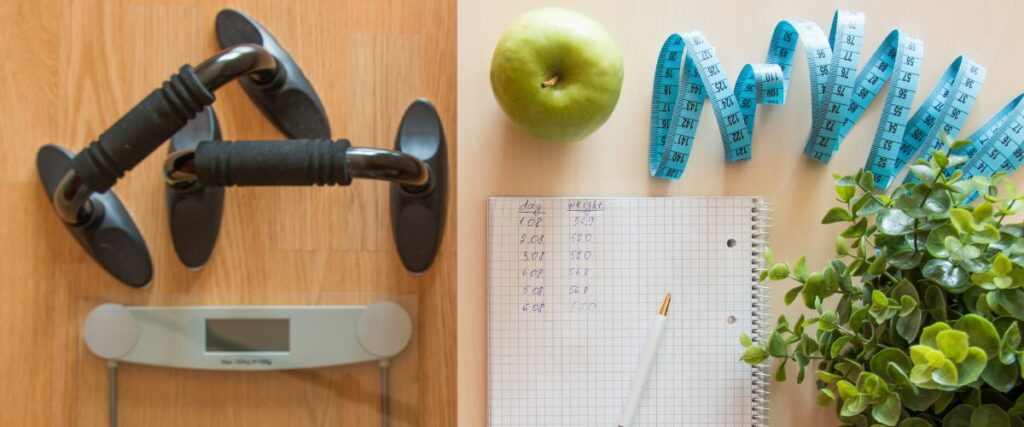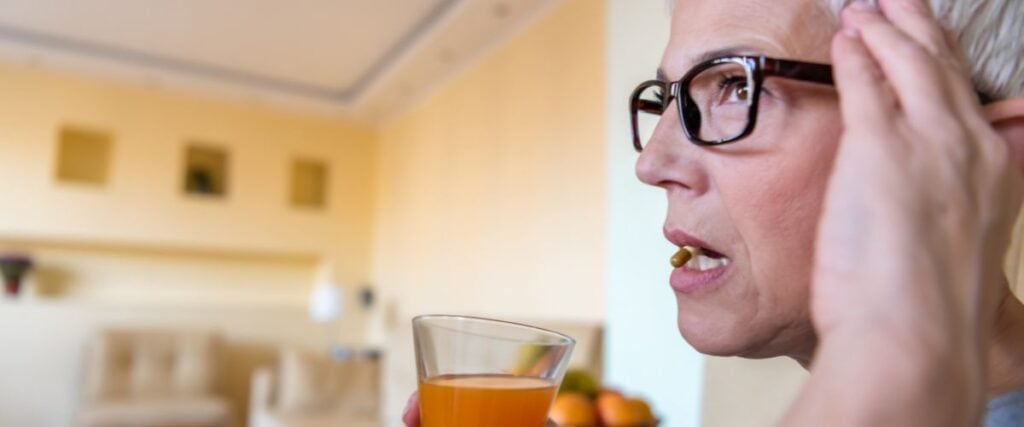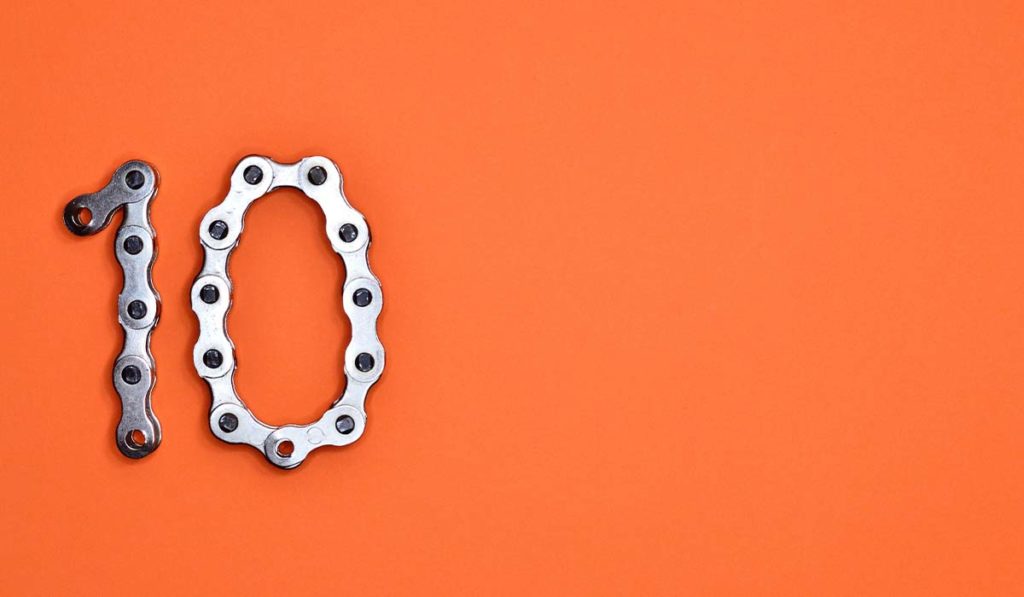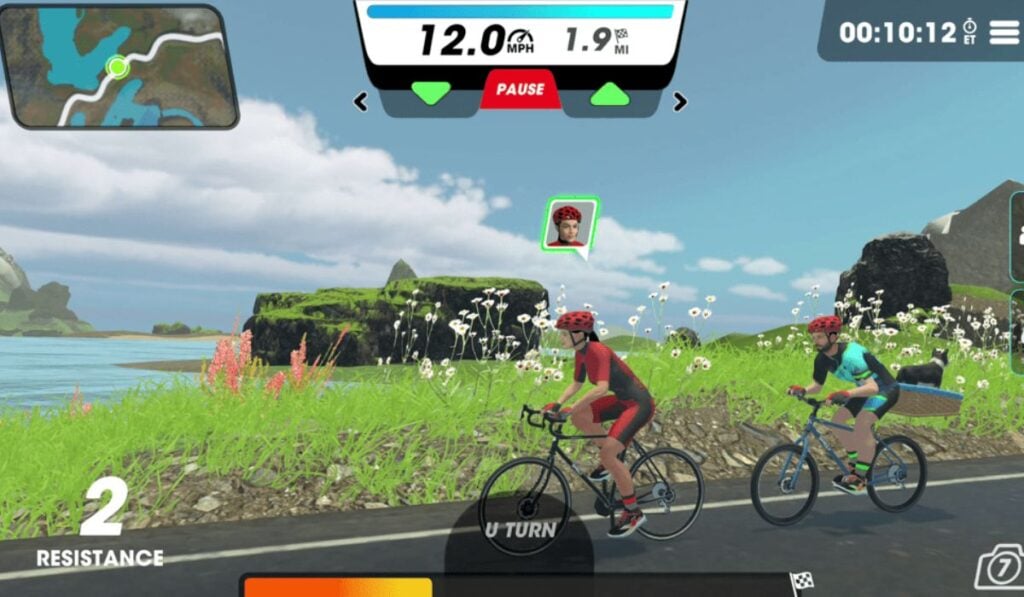
What Are the Dangers of Diet Supplements?
If you’re looking to shed some pounds, a pill that promises to help you lose weight might seem like a great solution. After all, taking a pill once a day is a lot easier than closely managing your eating habits and exercising regularly. But could this “solution” actually be more harmful than helpful?
Before reaching for a diet supplement bottle, you should know about the potential risks and alternative options. Although a pill might help you lose weight, an alternative approach might be safer and healthier in the long run.
What are diet supplements?

Dietary supplements are often sold in the health food section of grocery stores or online on sites like Amazon. They’re intended to supplement your diet and can be tablets, capsules, gummies, powders, drinks, or energy bars that contain vitamins, minerals, herbs, and other ingredients.1 Many popular diet supplements are also touted on social media as magic solutions to help you eliminate stubborn excess fat.
Many adults and kids in America take vitamins or supplements as a part of their daily diet to ensure they get adequate amounts of essential nutrients. For instance, you might:
- Take calcium or vitamin D pills to strengthen your bones.
- Take folic acid while you’re pregnant to prevent specific congenital disabilities.
- Take a daily fish oil pill if you have heart disease.
- Give your young child (and picky eater) a multivitamin to ensure they get all the vitamins and minerals they need to grow strong.
All these examples are typically safe and healthy ways to take supplements under the direction of a doctor.
However, taking dietary supplements for weight loss is an entirely different thing. These types of supplements might claim to work by blocking your body’s absorption of fat or carbohydrates. Others might claim to curb your appetite or speed up your metabolism. However, research doesn’t always back up these claims.2
Supplements explicitly intended for weight loss also contain many different ingredients and may not always be safe or effective. According to the National Institutes of Health, they can have harmful side effects.2
Is it okay to take diet supplements for weight loss?

Now that you know what they are, you might wonder, “Are dietary supplements safe?”
The diet supplements you see in stores are widely recognized as safe for human consumption, but that still doesn’t mean using them is a good idea.
For instance, if you’re taking certain prescription drugs, you may not know how the supplement will interact with your prescriptions. Or, if you have a history of disordered eating, you may be more likely to abuse the supplements by taking more than the recommended dose, which may cause harmful side effects.
If you’re considering taking dietary supplements to lose weight, speaking with your doctor first is best. They can help you find the safest and most effective solution. It’s especially important to talk to your doctor before taking weight loss pills if you have medical conditions like heart disease, high blood pressure, liver disease, or diabetes.
What are the dangers of diet supplements?

Before you buy any over-the-counter diet supplements, consider the following risks:
- The ingredients might be harmful. Diet supplements are not reviewed or approved by the FDA before being put on the market unless they contain a new ingredient.3 Sometimes, these products even contain prescription drugs or controlled substances, which can be dangerous to consume. All the ingredients may not be listed on the product label.
- Diet supplements can have unintended side effects. According to the National Institutes of Health (NIH), many weight loss pills contain ingredients that haven’t been tested in combination with one another, so their combined effects are unknown. Some ingredients might also interact with other medications you’re taking, causing health problems.
- They may not help you lose weight. In America, manufacturers don’t have to provide evidence to the FDA that their diet supplements are safe or effective. According to the NIH, companies rarely complete studies on people to determine whether their product is safe and effective. When they do, the studies typically involve very few people who only use the supplement briefly. Not surprisingly, the results aren’t usually reliable.2
The FDA has banned some popular ingredients found in weight loss supplements because they’ve caused harmful side effects in consumers, like:
- Increased heart rate
- High blood pressure
- Diarrhea
- Sleep problems
- Kidney problems
- Liver damage
- Rectal bleeding
If you take diet supplements for weight loss, you’re most likely to experience harmful side effects when taking high doses or several supplements simultaneously.
Benefits of getting nutrients from food instead of supplements
While many diet supplements claim to have weight loss and general health benefits, it’s still best to get your nutrients from whole foods instead of supplements. Here’s why:4
It’s easy to get too much of a good thing accidentally.

With some vitamins and minerals, too much of a good thing can be bad for you. If you are deficient in a particular vitamin or mineral, it’s best to work with your doctor to identify the best remedy. If you take a supplement to replenish your body’s stores of that nutrient, your doctor can also recommend a healthy dosage that won’t have unintended side effects or repercussions.
Vitamins and minerals are most potent when they come from food.

Stick with whole foods if you want the most bang for your buck. In addition to being more potent, the vitamins and minerals you consume with your food also contain other beneficial nutrients, like antioxidants, flavonoids, and carotenoids. You won’t get those in most supplements.
Food tastes better.

If you’ve ever had to choke down a giant fish oil pill, you know that food is much more enjoyable. Eating whole, healthy foods will make your weight loss journey much more enjoyable (and sustainable) than forcing yourself to choke down a handful of pills every morning.
You’ll save money.

Food is often less expensive than diet supplements for weight loss. Often, manufacturers put these products on the market at a high cost because they know people are desperate to lose weight and will try anything for the promise of an easy weight-loss process.
Do you really need dietary supplements for weight loss?

No. The safest and most effective way to shed excess pounds is to eat healthy foods, exercise regularly, and reduce your daily calorie intake.5
If your goal is to lose weight, it will take continual effort and hard work. However, Vingo can be a helpful part of this equation by offering fun and easy ways to run or cycle indoors.
Gone are the days of running for hours on the treadmill while staring at a wall. Instead, run through the beautiful landscape of Iceland and explore a virtual world with other Vingo members.
Personalize your running or cycling experience by using a selfie to create a one-of-a-kind avatar that looks like you! Select routes of varying difficulty that align with your physical abilities and goals. Use our real-time chat feature to check in with your workout partner while running or biking. And most importantly, enjoy your weight loss journey instead of hating it every step of the way.
Key Takeaways:
Dietary supplements for weight loss are not always safe or effective. According to research, the best way to lose weight is to eat a healthy, well-balanced diet, exercise regularly, and reduce your daily calorie intake. Vingo can help make regular exercise fun and accessible to all, making the weight loss process easier and more sustainable.Sources:
- Office of Dietary Supplements – Dietary Supplements: What You Need to Know. (n.d.). https://ods.od.nih.gov/factsheets/WYNTK-Consumer/
- Office of Dietary Supplements – Dietary Supplements for Weight Loss. (n.d.). https://ods.od.nih.gov/factsheets/WeightLoss-Consumer/
- NutritionU.S. Food And Drug Administration. https://www.fda.gov/food/dietary-supplements
- Harvard Health. (2015, June 1). Get nutrients from food, not supplements, from the June 2015 Harvard Health Letter. https://www.health.harvard.edu/press_releases/get-nutrients-from-food-not-supplements
- How to lose weight safely. (n.d.). Food and Nutrition | NHS Inform. https://www.nhsinform.scot/healthy-living/food-and-nutrition/healthy-eating-and-weight-loss/how-to-lose-weight-safely








